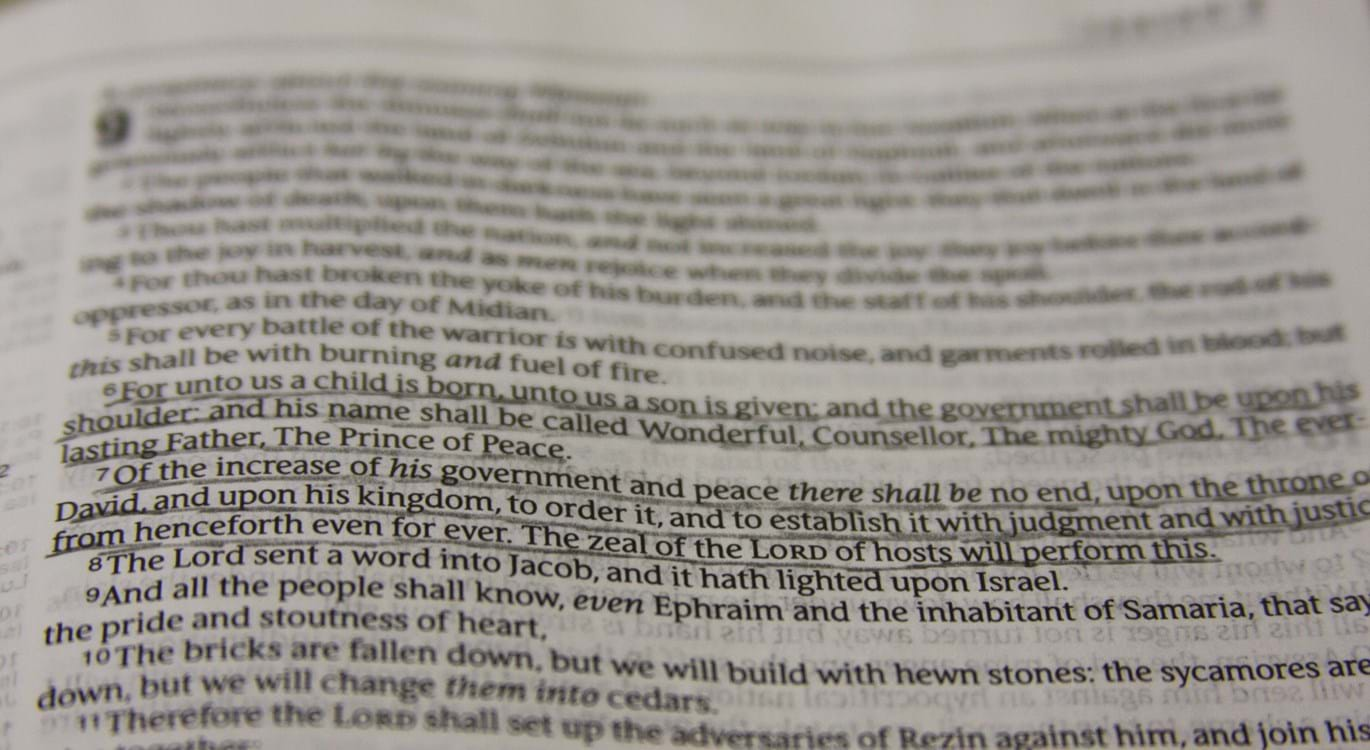During the period of American slavery most slaveholders would have defined themselves as Christians. Out of the more than three quarters of a million words in the Bible they used two favourite texts (Genesis 9:18-27 and Ephesians 6:5-7) to defend the practice of forced slavery. In the concentration camps of World War Two, Jewish prisoners could read the words ‘Gott mit uns’ (‘God with us’) – an expression which comes from Isaiah 7:14 – on the belt buckles of the guards who supervised their sufferings. These two examples show how the Bible, when not properly examined, can be used to prove almost anything. Any major proposition that appeals to the Bible as its authority must therefore be shown to rest on the broad testimony of scripture rather than on a few verses taken out of context. Furthermore, other relevant verses must not be twisted or ignored.
In this article we cannot consider every verse that teaches the deity of the Lord Jesus or every verse that has been used to prove otherwise; instead, we shall look at a variety of texts from the Old and New Testament.
Old Testament
Addressing His opponents, the Lord Jesus said, “You diligently study the Scriptures [what we now call the Old Testament] . . . these are the Scriptures that testify about me” (John 5:39). We should therefore be able to locate clear testimony to the deity of Christ in the Old Testament.
Psalm 110 opens like this: ‘The LORD says to my Lord: "Sit at my right hand, until I make your enemies your footstool"’.In Matthew’s Gospel the Lord Jesus uses these words to emphasise His deity. He asked the religious leaders, "What do you think about the Christ? Whose son is he?" When they replied ‘David’, Jesus asked them, "How is it then that David, in the Spirit, calls him Lord, saying, "'The Lord said to my Lord, "Sit at my right hand, until I put your enemies under your feet"'? If then David calls him Lord, how is he his son?"(Matthew 22:42).
The religious leaders were dumbstruck. Jesus was showing that the promised Messiah was not just the son of David in the human sense; He was also David's divine Lord. Jesus the Messiah was both God and man. As God, He is David's Lord; as man, He is David's son.
The book of Isaiah is sometimes called the fifth Gospel because it contains so many prophecies about the Lord Jesus. One of the most well-known is found in chapter 7: ‘Therefore the Lord himself will give you a sign. Behold, the virgin shall conceive and bear a son, and shall call his name Immanuel’ (Isaiah 7:14).
The name Immanuel is a transliteration of the original Hebrew word composed of Immanu (with us) and El (God).
The verse teaches that not only would there be a miraculous conception but the outcome would be ‘God with us’.
There are only three occurrences of Immanuel (or Emmanuel as it is translated in the New Testament) in the Bible. The additional ones are found in Isaiah 8:8 and Matthew 1:23. Of particular interest is Matthew’s reference to the birth of Jesus: ‘All this took place to fulfil what the Lord had spoken by the prophet: "Behold, the virgin shall conceive and bear a son, and they shall call his name Immanuel" (which means, God with us)’. The birth of Jesus was the fulfilment of Isaiah’s prophecy that God is with us.
At the incarnation, the Holy God came to live with sinful man. The Son of God became the Son of man so that, through His perfect life and sacrificial death on the cross, He might change sons of men into sons of God. Little wonder the great hymn writer John Wesley could write these lines in his famous carol “Hark the Herald Angels sing”:
Veiled in flesh the Godhead see; Hail the incarnate Deity, Pleased as Man with men to dwell, Jesus, our Emmanuel.
A final Old Testament reference to consider is in Isaiah chapter 9:
For to us a child is born, to us a son is given; and the government shall be upon his shoulder, and his name shall be called Wonderful Counselor, Mighty God, Everlasting Father, Prince of Peace (Isaiah 9:6).
The chapter begins by prophesying that the coming Messiah would bring light to people dwelling in darkness, and Matthew 4:14 points to Jesus as the fulfilment of this prophecy. Amongst other titles of Christ is ‘mighty God’, considered by many to be a clear reference to His deity.
However, some who concede that Jesus is a ‘mighty God’ insist that, because He is not referred to as the ‘Almighty God’, he is therefore a lesser or inferior god. Whilst it is true that He is not called ‘Almighty God’, it is important to remember that Jehovah Himself is given the title ‘Mighty God’ in Isaiah 10:21 and Jeremiah 32:17-18.
When the whole of scripture is studied, the argument that ‘Mighty God’ refers to a lesser deity than ‘Almighty God’ cannot stand.



